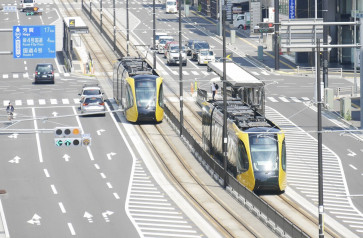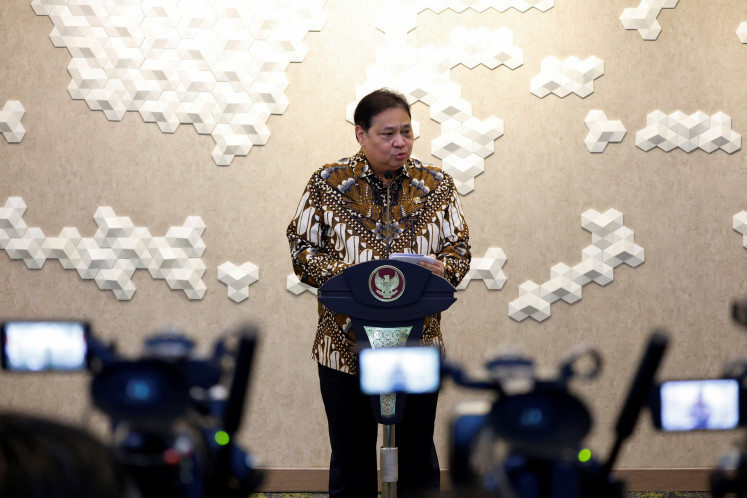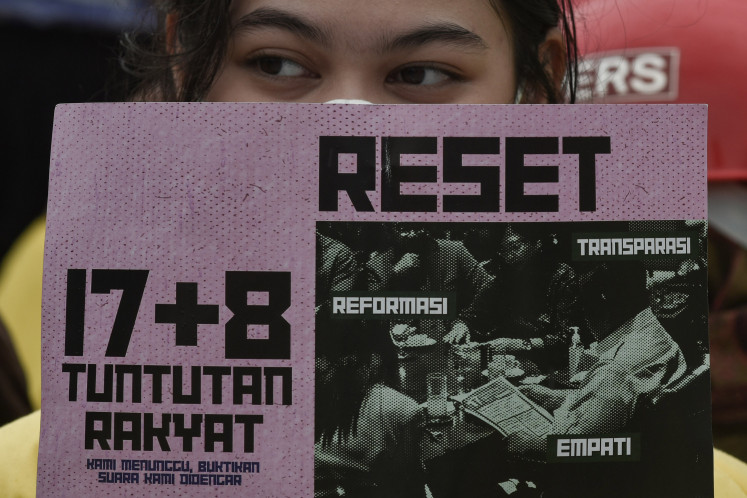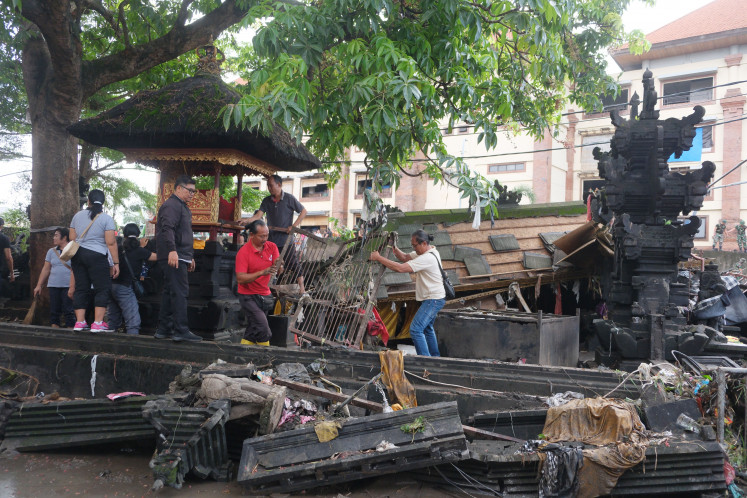Popular Reads
Top Results
Can't find what you're looking for?
View all search resultsPopular Reads
Top Results
Can't find what you're looking for?
View all search resultsNo national exams next year: Minister
Change text size
Gift Premium Articles
to Anyone
I
n a surprise move, the Cultural and Education Ministry has decided to impose a moratorium on national examinations at all educational levels starting next year.
Cultural and Education Minister Muhadjir Effendy said on Friday that the move to suspend the controversial exams was aimed at implementing what was stipulated in President Joko “Jokowi” Widodo’s Nawacita, his nine-point agenda, that the exams would not be used as a gauge for “measuring the national education system”.
Muhadjir said Jokowi had agreed to the suspension, which would come into force after the President issues a presidential instruction on the matter.
Muhadjir, who took up his current position following a Cabinet shake-up in July, said that, if the ministry decided to implement another kind of exam in the future, it would likely be managed by regional administrations instead of the central government.
Currently, senior and vocational high school exams are managed by the provinces, while elementary and junior high school exams are overseen by regencies and municipalities.
“In the future the government will still play an important part in controlling the implementation [of the exams] through the BNSP [National Education Standardization Body],” Muhadjir told reporters on the sidelines of the 2017 National Teachers Day commemoration at his office in South Jakarta on Friday.
The national exams are held annually across the country for all educational levels.
Though the plan to scrap the exams was broached in 2014 – the time when Jokowi introduced his Nawacita program on his campaign trail prior to assuming the presidency — Muhadjir’s predecessor Anies Baswedan still held them in order to map out the quality of schools nationwide, but no longer to determine whether a student graduated or not.
During the term of Anies, who is currently standing in the Jakarta gubernatorial election, the ministry introduced a policy in which the senior high school exam score was the basis for entering state universities, along with school academic reports and entrance tests, and implemented a computer-based exam aimed at eradicating old problems, such as leaks and the wrong distribution of answer sheets, as well as rampant cheating among students.
But surveys revealed that, though the national exams were no longer the single factor determining whether students graduated, individual cheating still marred the implementation of the computer-based test.
Anies said in May that such practices were still rampant, because many school principals continued to provide students with the answer keys, a hangover from when the exams determined student graduation.
The ministry’s education evaluation center head, Nizam, said the decision to impose a national exams moratorium was based on what he described as a “thorough evaluation” carried out to determine the quality of schools nationwide, through which the ministry found out only 30 percent of schools met the standards.
“After conducting the evaluation, we concluded that this [national exam moratorium] is the best option,” Nizam told The Jakarta Post, adding that the decision was also intended to respond to the Supreme Court’s 2009 cassation ruling.
The cassation verdict ruled that the government had to first improve the quality of education across the country before implementing the exams again.
Then-education minister Muhammad Nuh, however, decided to retain the national exams, saying that they were the only appropriate means of educational assessment.
Education expert Itje Chodijah hailed the government’s move to impose the exam moratorium, saying it should lead teachers to become more creative in designing methods of evaluation other than the national exams.
Now that the government has decided to suspend the exams’, it has to improve the other facets of the country’s educational standards, such as facilities and teacher quality, Itje added.










